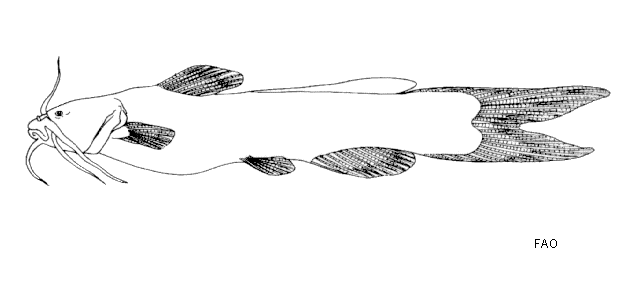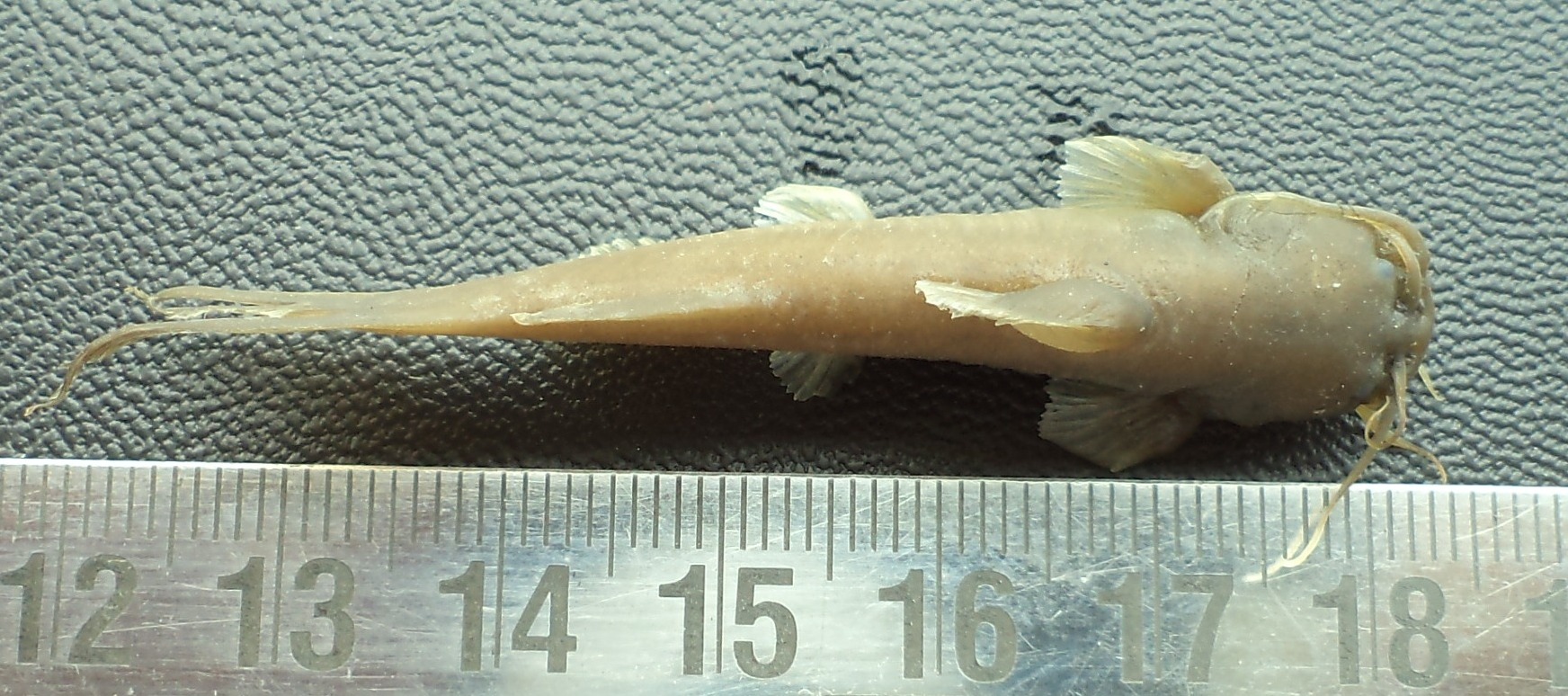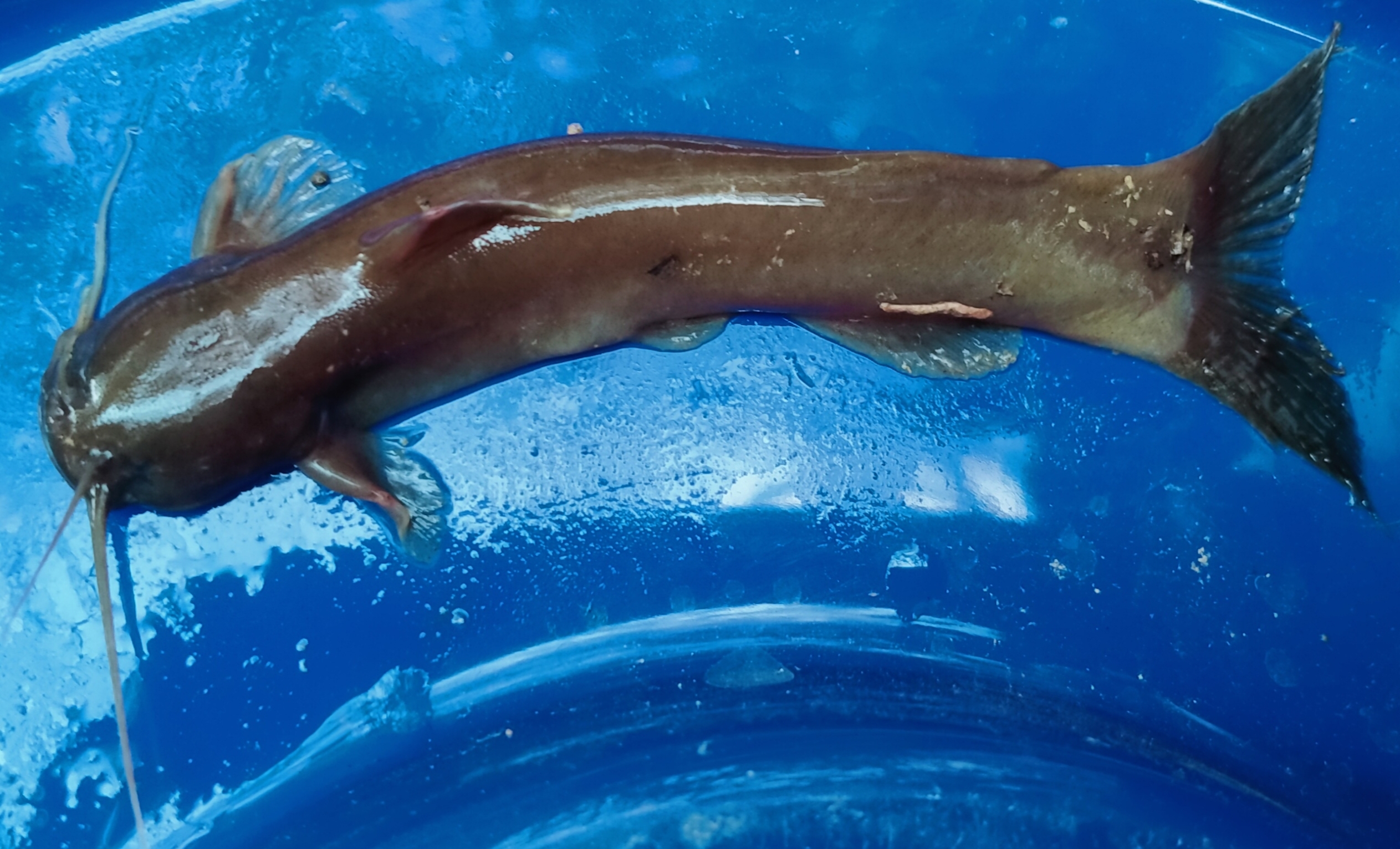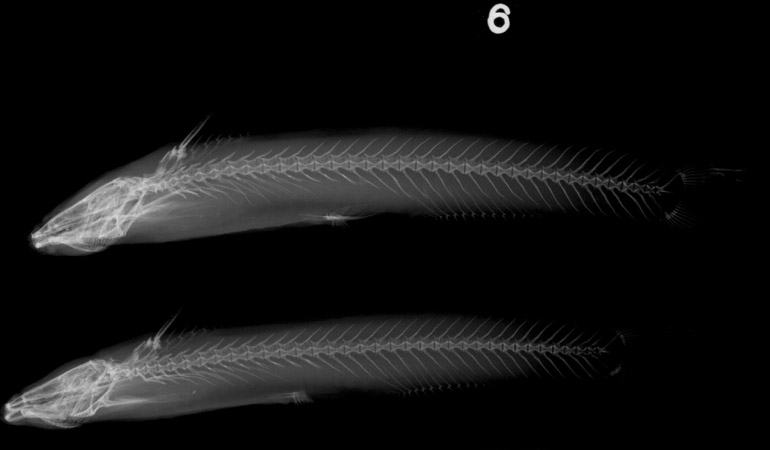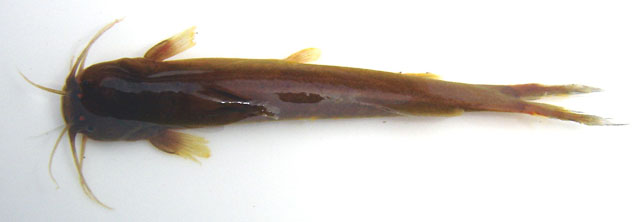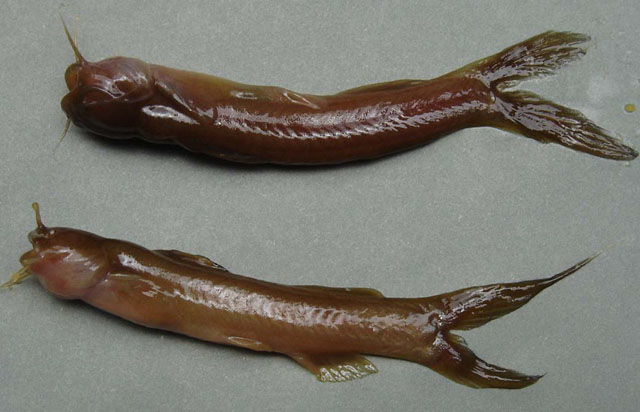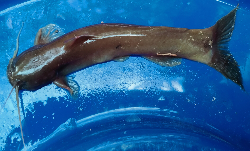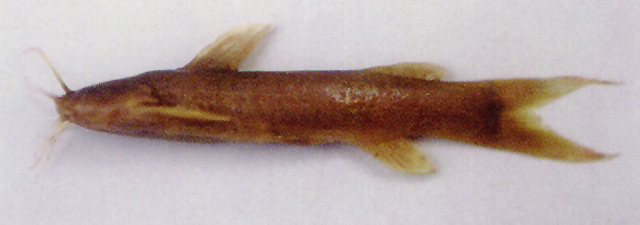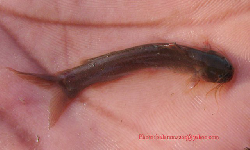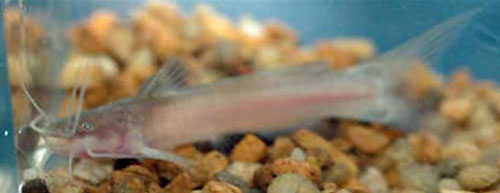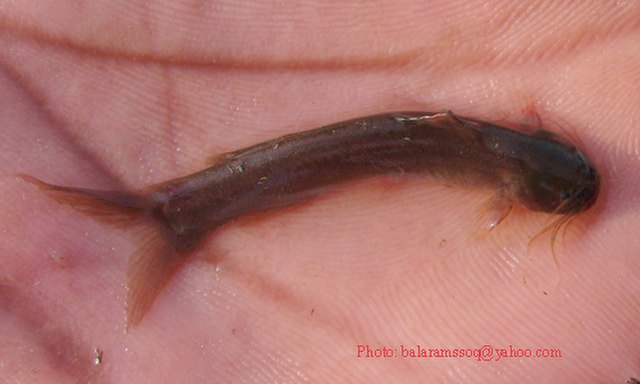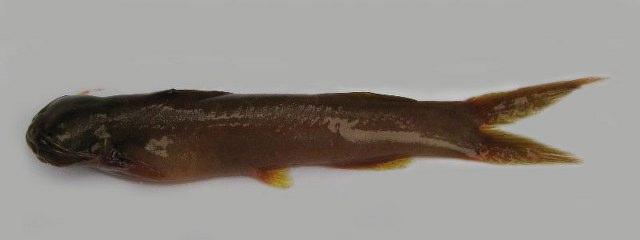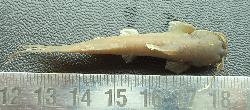Amblyceps mangois (Hamilton, 1822)
Description
Differs from A. mucronatum, A. murraystuarti, A. platycephalus, A. foratum and A. variegatum in having a relatively short body with 34-36 (versus 38-40) vertebrae, and a caudal fin with upper and lower lobes fo distinctly different shapes (versus truncate caudal fin in A. murraystuarti and with both lobes similar in shape in other Indochinese species). Pectoral spine smooth (Ref. 37785).
Common Names
Taxonomic Hierarchy
Kingdom: Animalia
Phylum: Chordata
Class: Teleostei
Order: Siluriformes
Family: Amblycipitidae
Genus: Amblyceps
Species: Amblyceps mangois (Hamilton, 1822)
Climate Zone
Location
Biology
Occurs in pebbly beds in swift currents at the base of hills (Ref. 4833). Found among rocks and boulders on the bottom of fast flowing upland streams. Diet consists of aquatic insects. Not seen in markets (Ref. 12693).
Habitat
benthopelagic


